Summer

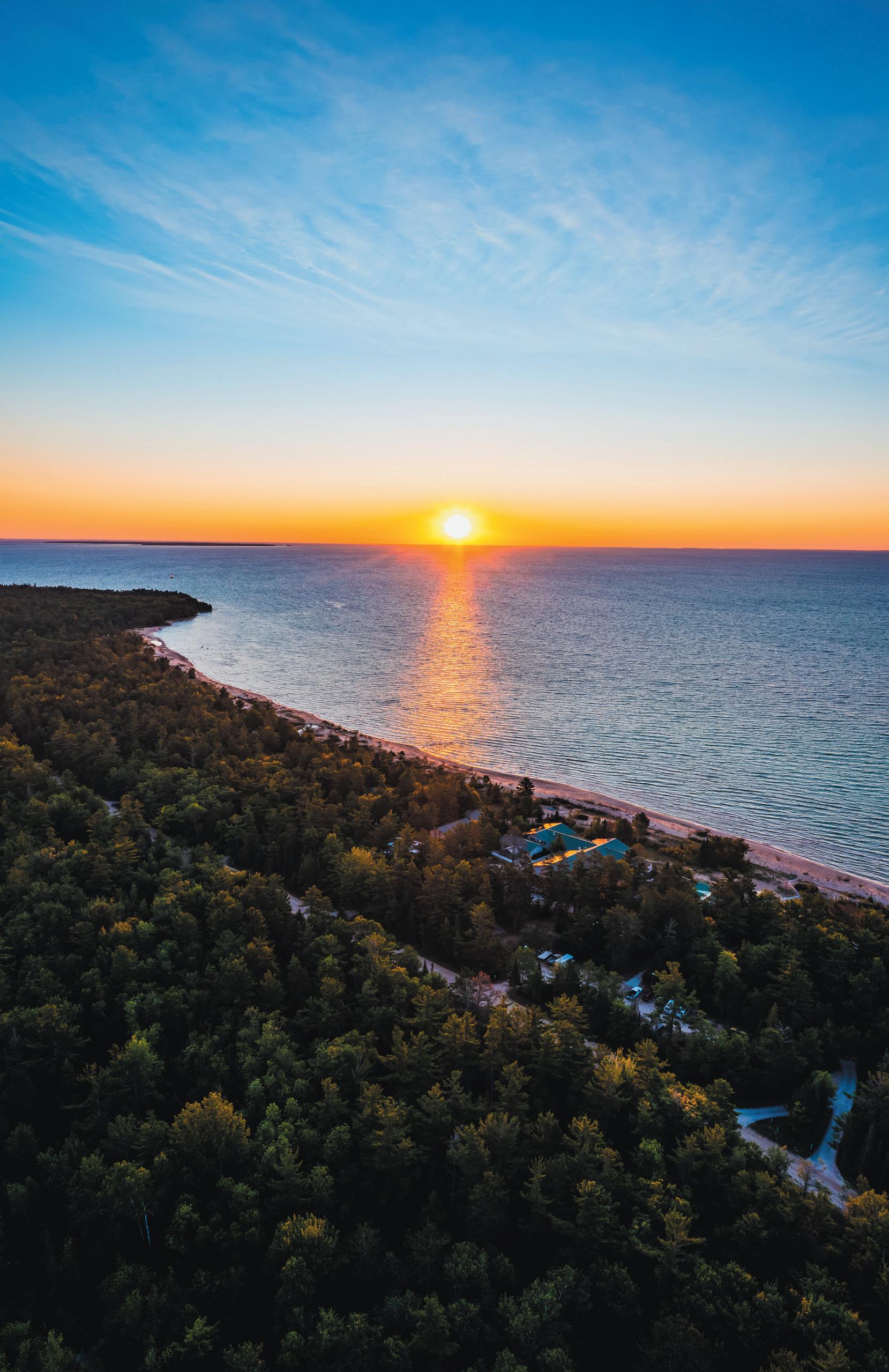
2023
CMU Biological Station
The mission of the Central Michigan University Biological Station is to support high quality research and teaching related to the Great Lakes. We proudly:
• Support cutting-edge scientific research on the Great Lakes ecosystems.
• Offer excellent courses and research opportunities for university students.
• Present opportunities for science and nature education for K-12 students and teachers.
• Provide other universities opportunities to teach their own field courses.
• Provide the general public with informal education about the Great Lakes and connecting ecosystems.
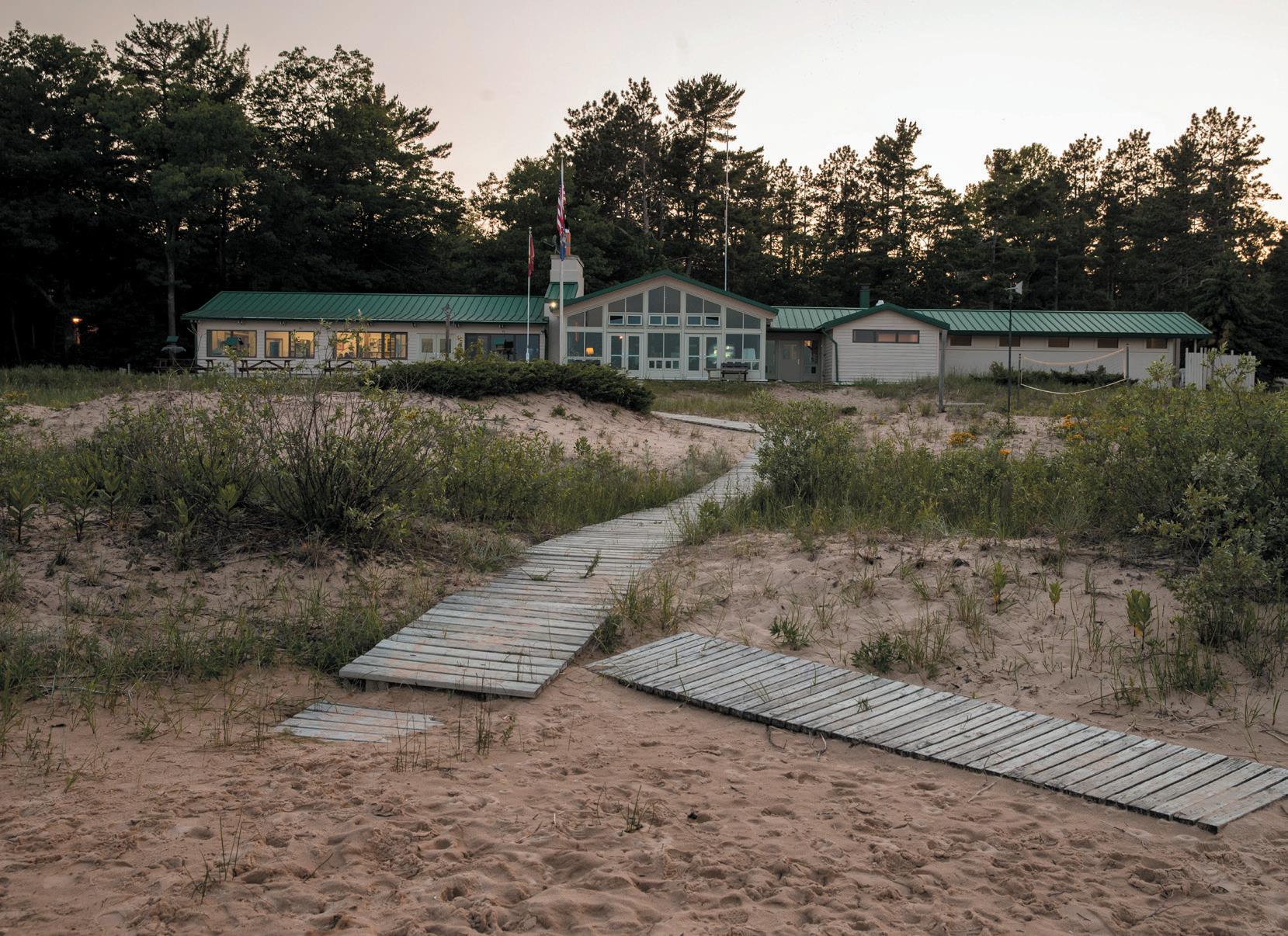
Institute for Great Lakes Research

The Great Lakes contain nearly 20% of the world’s surface fresh water and the Institute for Great Lakes Research (IGLR) takes a multidisciplinary approach to understanding the complex environmental issues affecting the Great Lakes basin. This area includes associated ecosystems such as tributaries, wetlands, and coastal regions, as well as the lakes themselves.
The IGLR is committed to promoting and facilitating collaborative research and education on the Great Lakes. We partner with other institutions and agencies to leverage our expertise and training.
CMU BIOLOGICAL STATION
OPEN HOUSE • TUESDAY, JULY 18, 2023
• Games and activities for all
• Guided tours
• Research students display summer projects
• Light refreshments
• Admission is FREE
Children’s Field Trip
Thursday, July 20, 2023

• With Interim Station Manager Kim Schraitle and Operations Assistant Conor Judge
• $10 to the Beaver Island Historical Society, lunch is not included
• Thursday, July 20, 2023 - 9am-12pm
This annual field trip for kids continues as part of Museum Week. Kids of all ages are welcome! We’ll tour the wetlands, fields, and forests of CMU’s Miller’s Marsh. Kids will view live snakes, use dipnets to collect aquatic insects, learn about the impacts of exotic and invasive species, and much more!
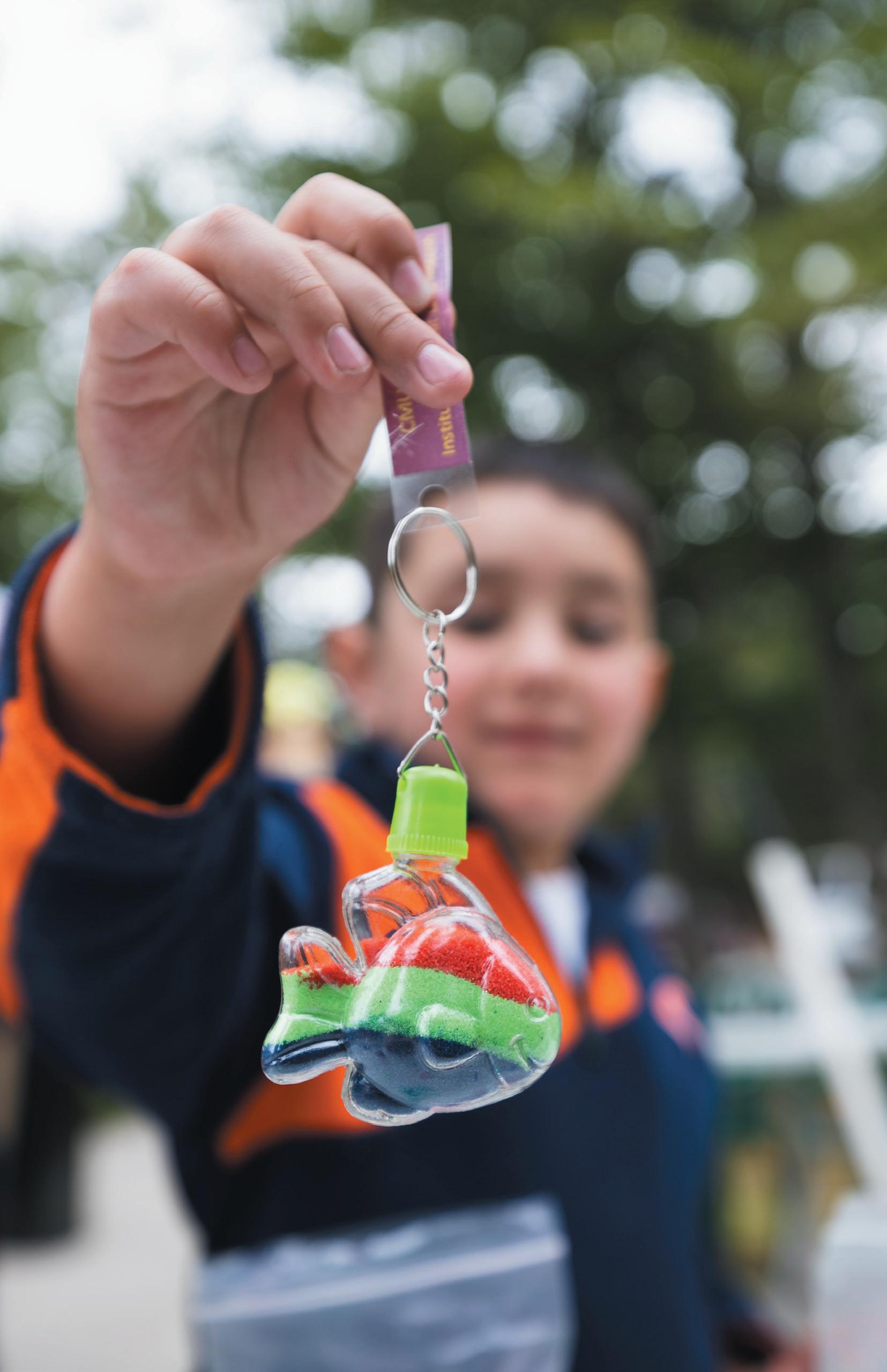
STUDENT RESEARCH SPOTLIGHT

CMU students at the undergraduate and graduate level regularly use the station for research.
Current Conservation Biology master’s student Mary Benjamin is focusing her summer’s work on secretive marsh birds in coastal wetlands. She is trying to determine if passive acoustic recorders will increase the detections of secretive marsh
birds, specifically Virginia Rail and Sora. This will also help to determine if these species are more likely to call during darkness than daylight.
She has deployed 18 acoustic recorders across Beaver Island and nearby islands, and plans to start analyzing the collected data in July. Testing of acoustic recorders will aid in refining monitoring protocols for bird
species and assessing ecosystem health of coastal wetlands. Mary is in Dr. Tom Gehring’s research lab and part of the Coastal Wetland Monitoring Program. The inspiration for this research was the overall lack of rail detections in data gathered on bird species through bird call surveys in the Coastal Wetland Monitoring Program (see more on the CWMP on page 8).
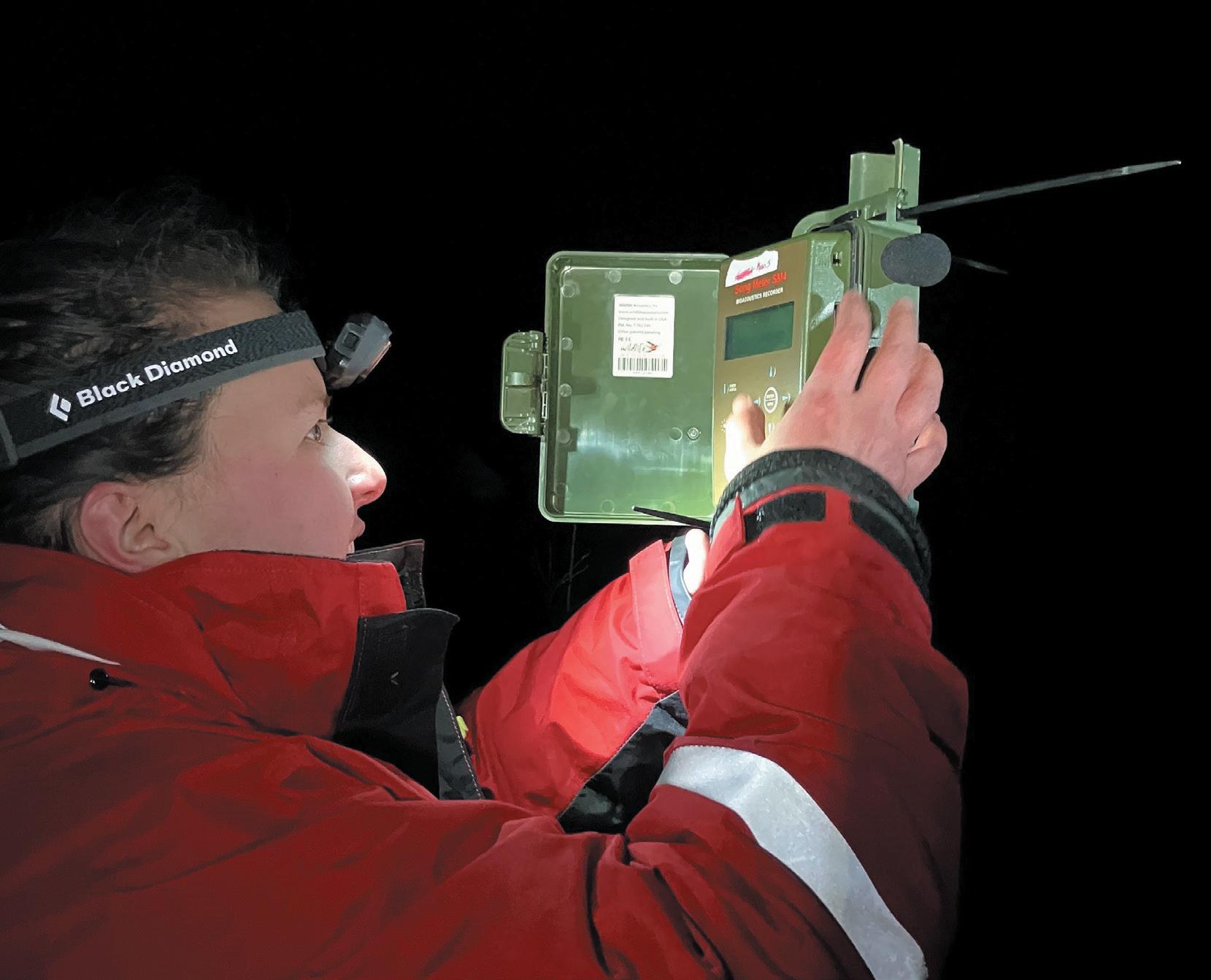
O N
SUMMER RESEARCH EXPERIENCE FOR UNDERGRADUATES
The Central Michigan University Summer Research Experience for Undergraduates program gives promising undergraduates from across the country an opportunity to gain experience conducting research while spending a summer at the CMU Biological Station on Beaver Island.
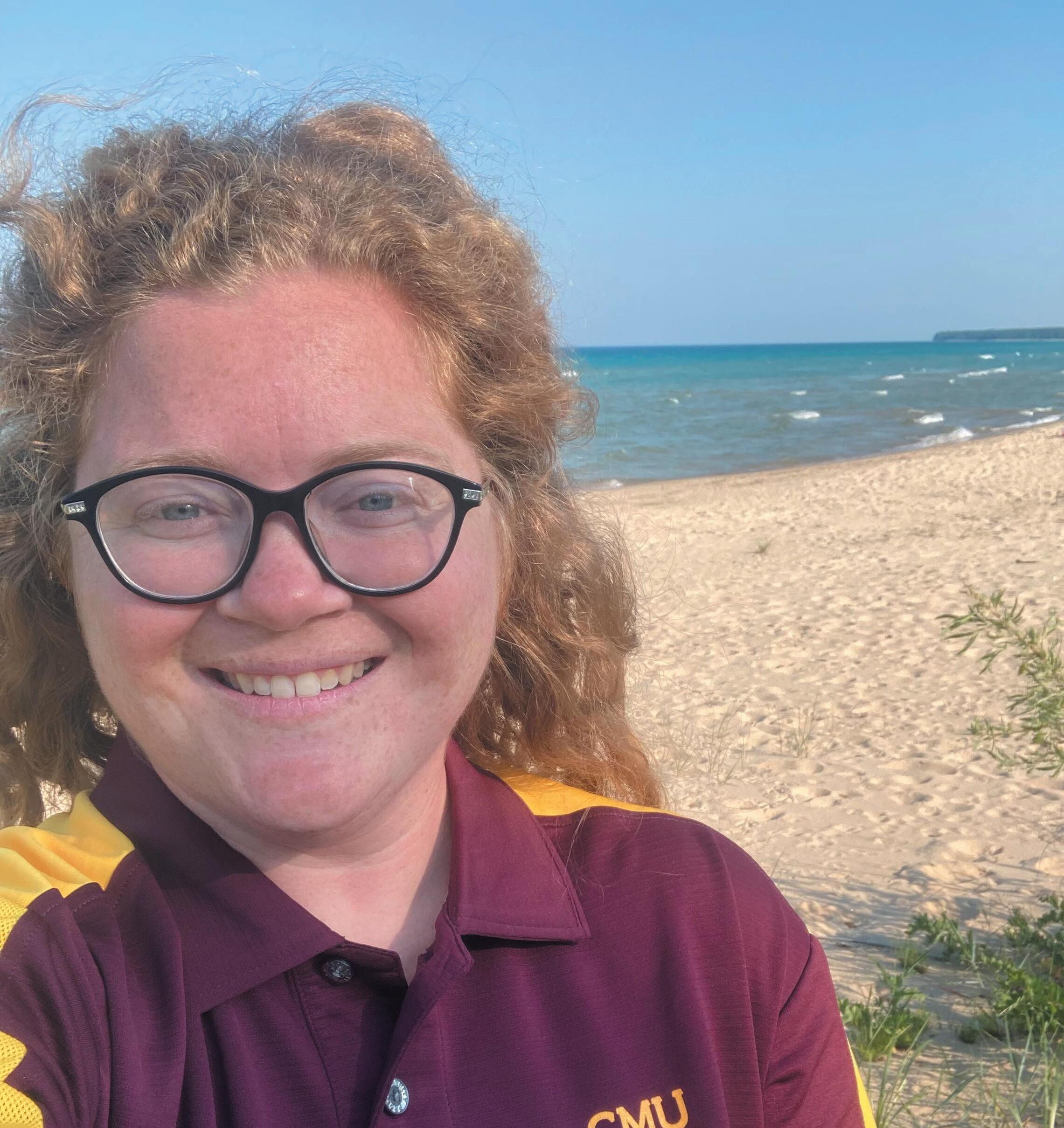
The Summer 2023 research program includes six bright students who are interested in understanding our Great Lakes ecosystems. Each student works on a project over their eight-week stay at CMUBS with guidance from CMU faculty mentors. Doctoral student Kelly Hoyer serves as the on-site coordinator and works with the students throughout the summer.

2023 Research Experience for Undergraduate Participants
Andrew Bumps, Louisville, Kentucky
University of Dayton, Junior Biology Major
Research Project: I am studying the ratio of differing reproductive strategies of male round gobies, and what impact this ratio of two different reproductive tactics has on aggressive and exploratory behavior in fish in four different locations around Beaver Island.
Career goals: I am interested in pursuing a career in aquatic ecology research and teaching.
Katarina Gonzalez, Gallatin, Tennessee
Trevecca Nazarene University, Senior Biology
Major Research Project: I am researching aerobic hydrocarbon degrading microorganisms in Lake Michigan around Beaver Island by studying the prevalence of existing microbial communities that would be the “first responders” to an oil spill. I included samples collected around the ferry route to increase the possibility of finding oil degrading microbes.
Career goals: I would like to work in a laboratory as a Microbiologist with an environmental focus.

Emily Tryc, Hamilton, Michigan
Central Michigan University, Senior Biology Major Research Project: I am researching goby alternative reproductive strategies and their connection to environmental factors.


Career goals: Continuing to research ecology and apply GIS technologies
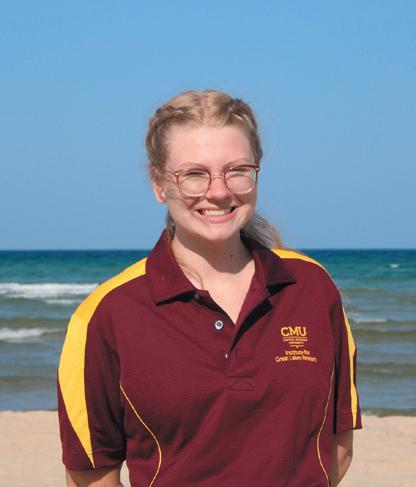
Katie Guinn, Fort Wayne, Indiana Indiana University Bloomington, Senior Environmental Science Major
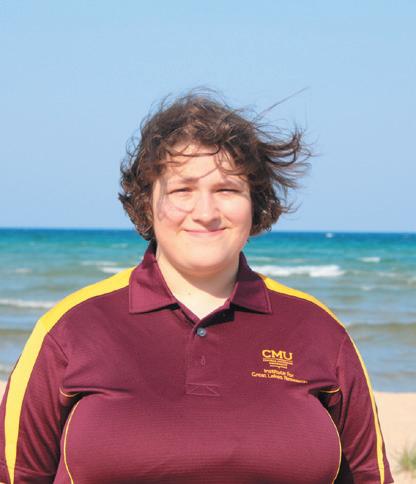
Research Project: I am investigating the effect of microplastics on phytoplankton communities. In particular, I am focusing on the effect lake trophic state has on the effects of microplastics on the community.
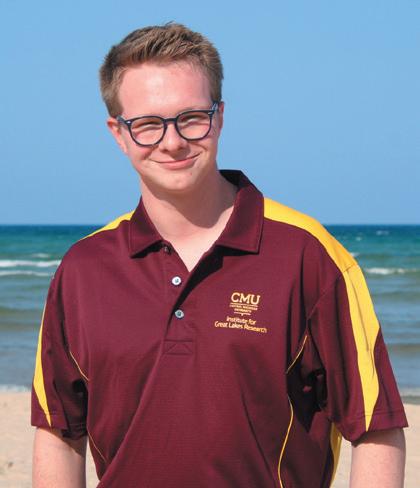
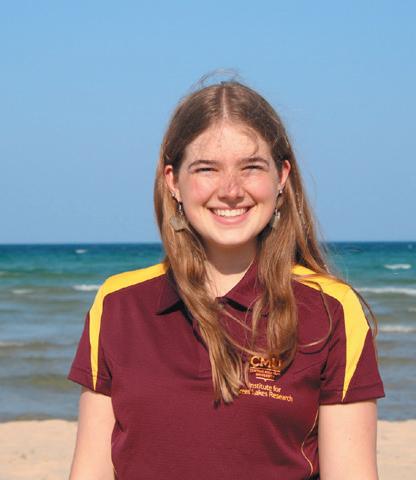
Career goals: I want to get my Ph.D. and become a limnologist. I enjoy studying plankton, macroinvertebrates, and community ecology!
Jack Gensler, Toledo, Ohio Ohio Wesleyan University, Sophomore Microbiology Major Research Project: Pitcher plants provide a great model to study nutrient cycling, as well as microbial communities and their symbiotic relationship with plants. I am investigating the enzymatic activity in pitcher plant fluid over time and identifying the presence of nitrifying microorganisms in the fluid.
Career goals: I want to study the interaction of environmental science and microbiology.

Lauren Western, Wheaton, Illinois University of Montana, Junior Wildlife Biology Major Research Project: I am investigating whether environmental factors correlate to shell shape in the freshwater gastropod Campeloma decisum in insular lakes on Beaver Island. I have collected snails from several sites from four inland lakes. At each site I measure environmental conditions like pH, conductivity, water temperature, phosphate concentration, and substrate type and composition.
Career goals: I would like to be a wildlife biologist working for a federal or state agency.
GREAT LAKES

COASTAL WETLAND MONITORING PROGRAM
Coastal wetlands are vital to the health of the Laurentian Great Lakes. As “kidneys of the landscape”, wetlands buffer the lakes from pollution by filtering and absorbing excess nutrients and pollutants.
Wetlands also provide essential habitat for native fish species, diverse invertebrates, rare and endangered plants, migratory birds, reptiles, amphibians, and mammals.
Approximately 50% of Great Lakes wetlands have already been lost or severely degraded due to human activities.
Restoration of Great Lakes coastal wetlands is a binational priority but is hindered by insufficient data on water quality, wetland flora and fauna, and locations of healthy versus impaired wetlands.
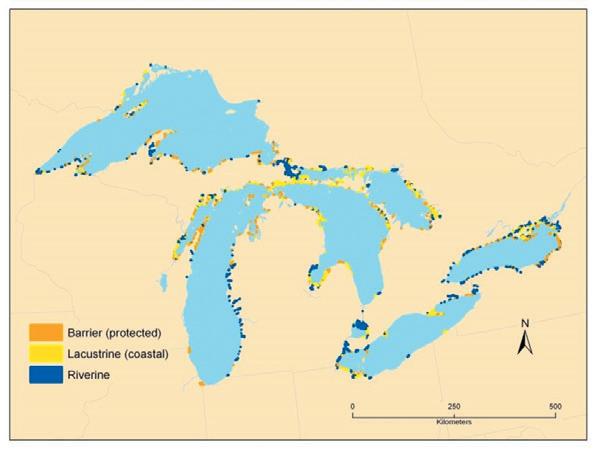
With GLRI funding, administered by the USEPA, a binational consortium of 13 institutions comprise the Great Lakes Coastal Wetland Monitoring Program.

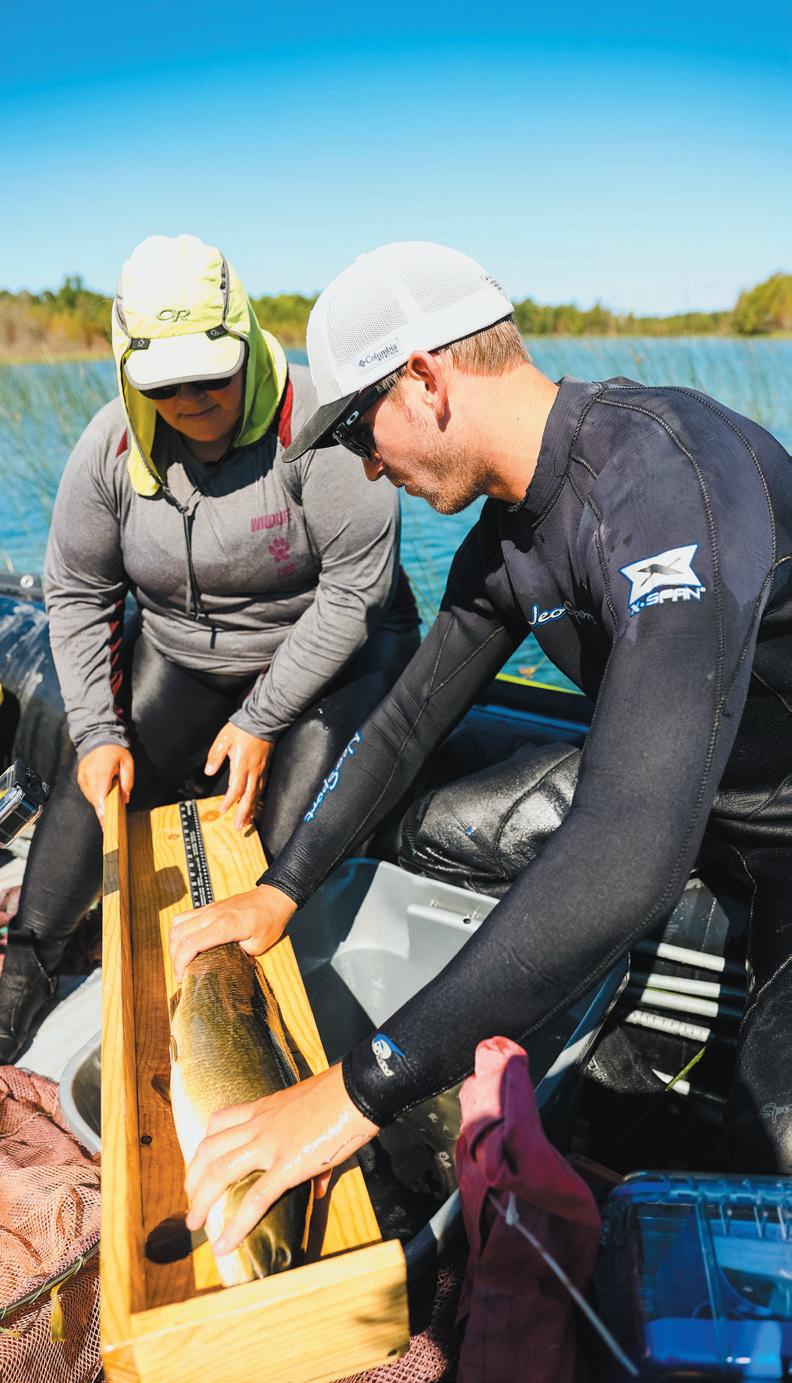
CLASSES AND WORKSHOPS AT THE CMU BIOLOGICAL STATION
For over 50 years, CMU has offered classes to students at the Biological Station. For the 2023 Summer Semester we are offering:
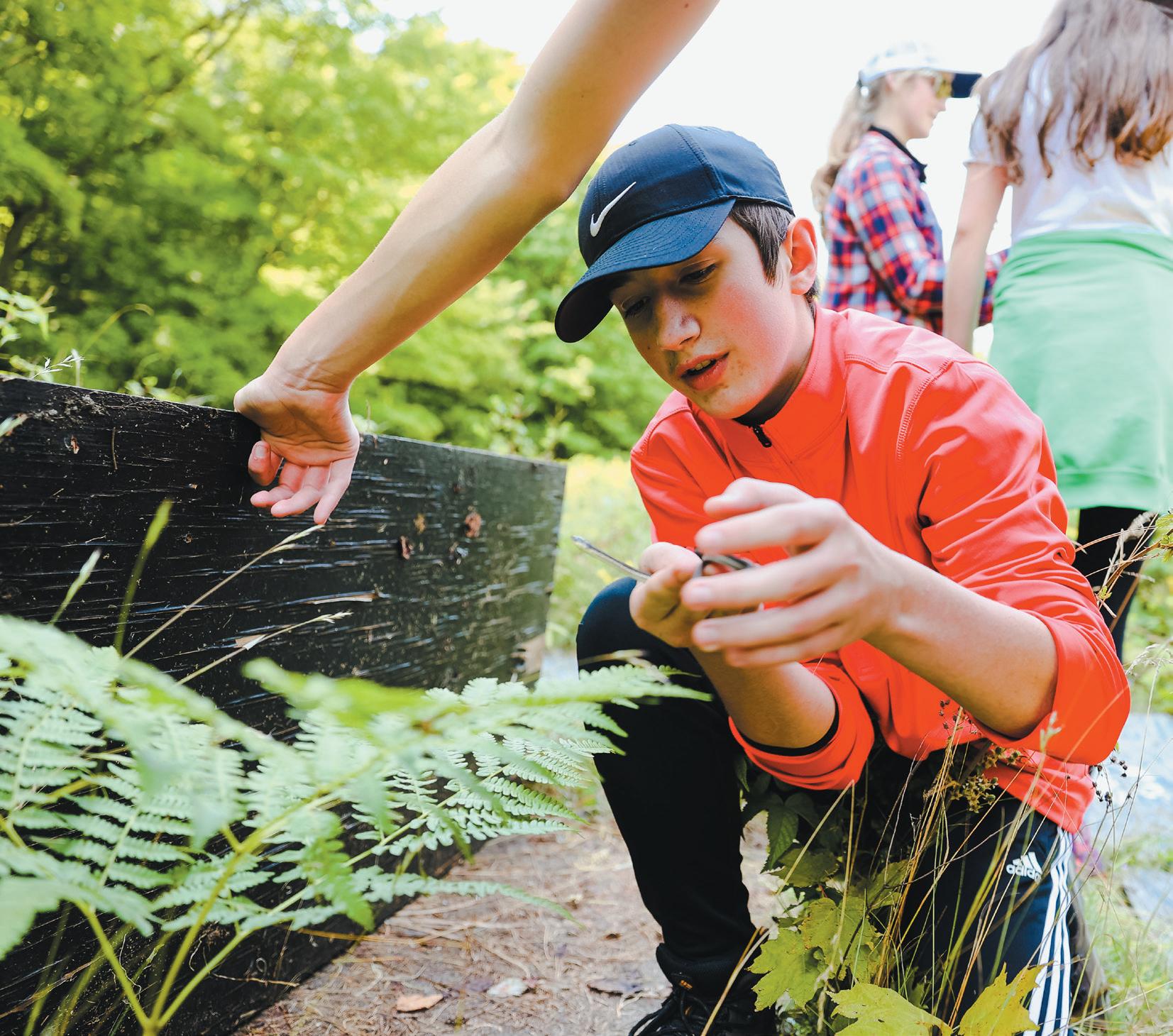

• Avian Field Experience (BIO 516Z)*
• Michigan’s Amphibians and Reptiles (BIO 597ZE)*
• Quantitative Analysis (CHM 211ZQR)

• Aquatic Entomology (BIO 597ZD)*
• Foundations of Ecology (BIO 213Z)
• Field Biology (BIO 100Z)
*Some courses are also offered as non-credit workshops to enable other adults to increase their knowledge of the natural world and enjoy time at the station. More information on these and future courses and workshops can be found at www.se.cmich.edu/cmubs/.
Check out our facilities
• 3 Teaching Classrooms/Labs
• 1 Large Lecture Hall
• 6 Research Labs
• Cafeteria
• Lodge
• Laundry Facilities
• Main Office
• Gift Shop
• Fitness Room
• Sandy Beach Front
• Volleyball and Basketball Courts
• Capacity to House 136 People
• Men’s and Women’s Dorm (20 people each)
• 10 Cabins (2-6 people each)
• Campsites with Electricity
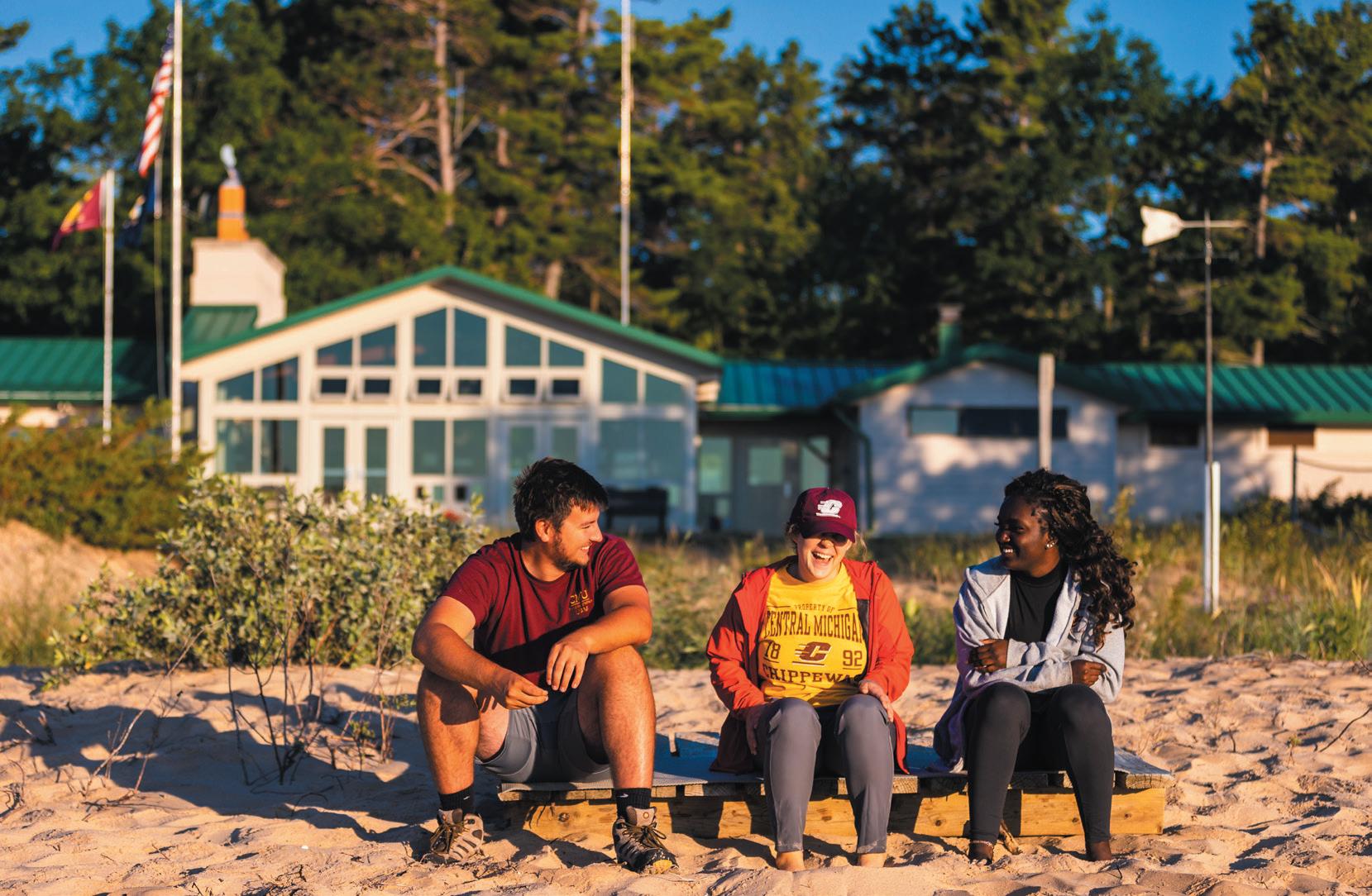
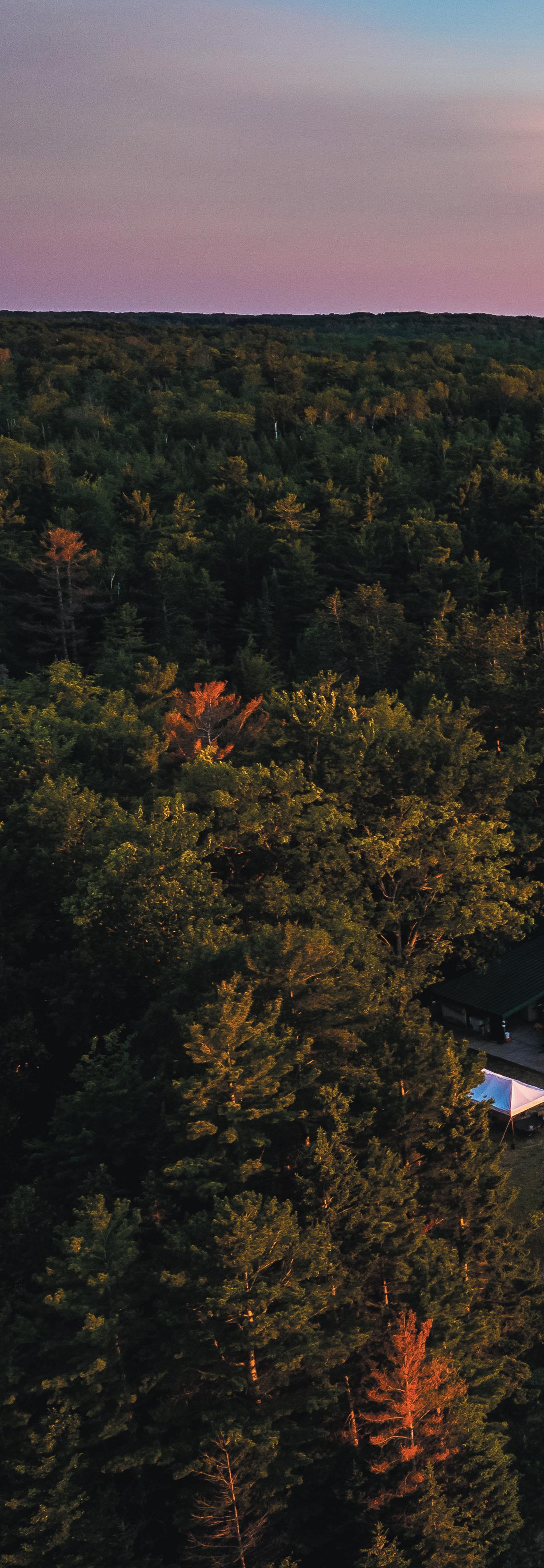
• Faculty and Staff Housing

Join our team
Staff are vital to making each season at Central Michigan University Biological Station a success. Nine wonderful CMU students and staff are hired each year to work in dining services, facilities management, conference hall director, and operations assistant positions. Contact station manager Kim Schraitle and ask how you can join next year’s team.
Central Michigan University Biological Station for camps and conferences
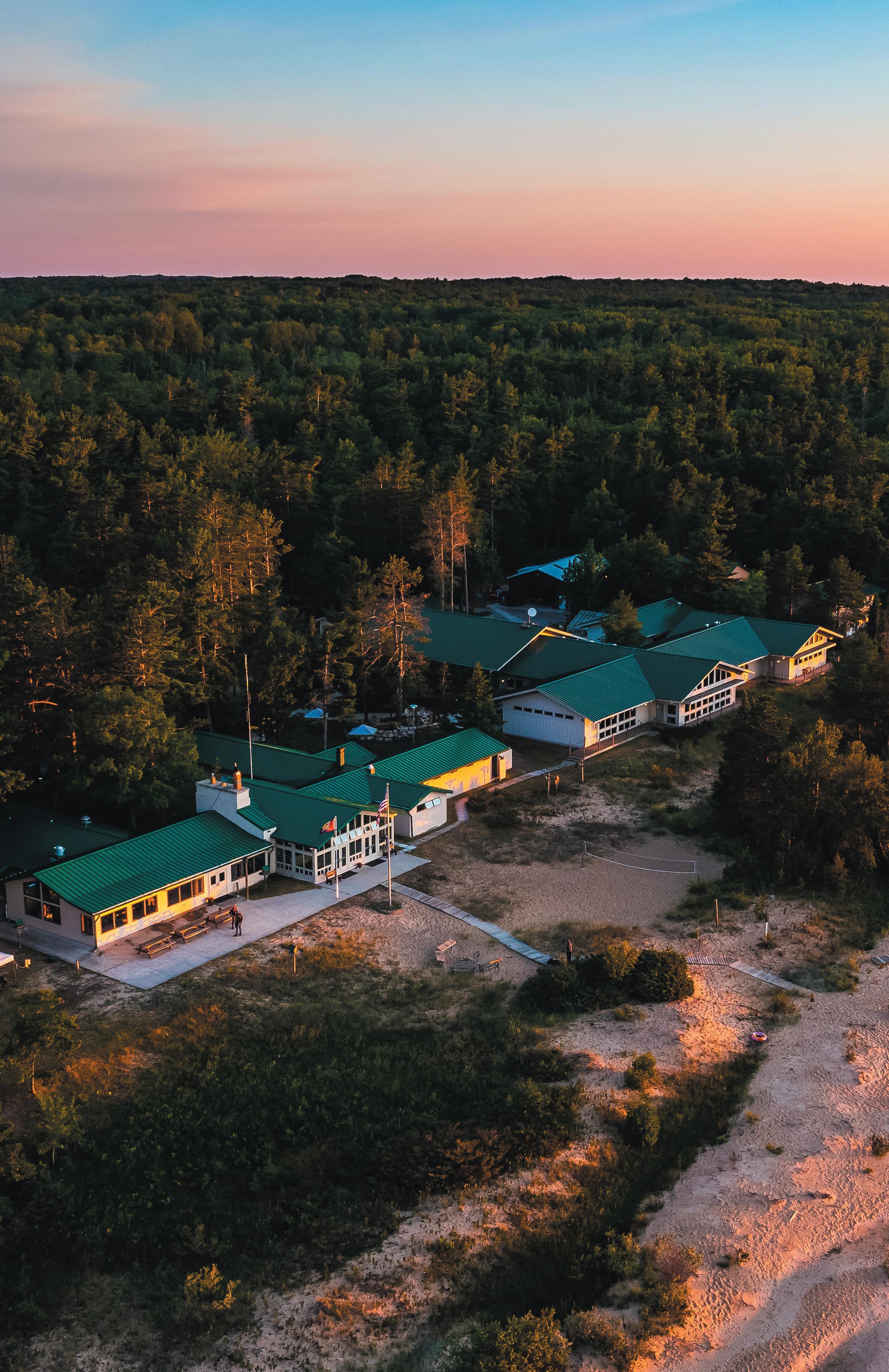
CMUBS has become a conference destination! In September 2022, we hosted the Organization of Biological Field Stations (OBFS) annual conference, and in October 2022 the annual conference for the Michigan Alliance for Environmental and Outdoor Education (MAEOE).
Already in 2023, CMUBS has hosted middle school and high school groups from Clare, Fremont and Plymouth, along with college classes from other universities, such as Northern Michigan University and Eastern Michigan University. Visiting researchers from the Michigan Department of Natural Resources and other federal and state agencies use the station as a base for their work on and around Beaver Island.
In June, we welcomed the Central Michigan University Summer Theater group who brought an excellent performance to the Beaver Island community. We also look forward to hosting the Central Michigan University Cross Country and Track and Field teams again for part of their annual training camp in August. The student-athletes will take advantage of Beaver Island’s many miles of roads and trails to prepare for their upcoming seasons. The relative seclusion of CMUBS helps these groups focus on team bonding and productivity.
New groups are always welcome! Contact us at CMUBS@cmich.edu to reserve space for your group!
As a member of the Friends of CMUBS, you will have many opportunities to help hundreds of students and faculty members study and conduct research at the CMU Biological Station on Beaver Island. The society was established in 1995 to provide funding that supports hands-on research opportunities and strengthens the quality of education at CMUBS.
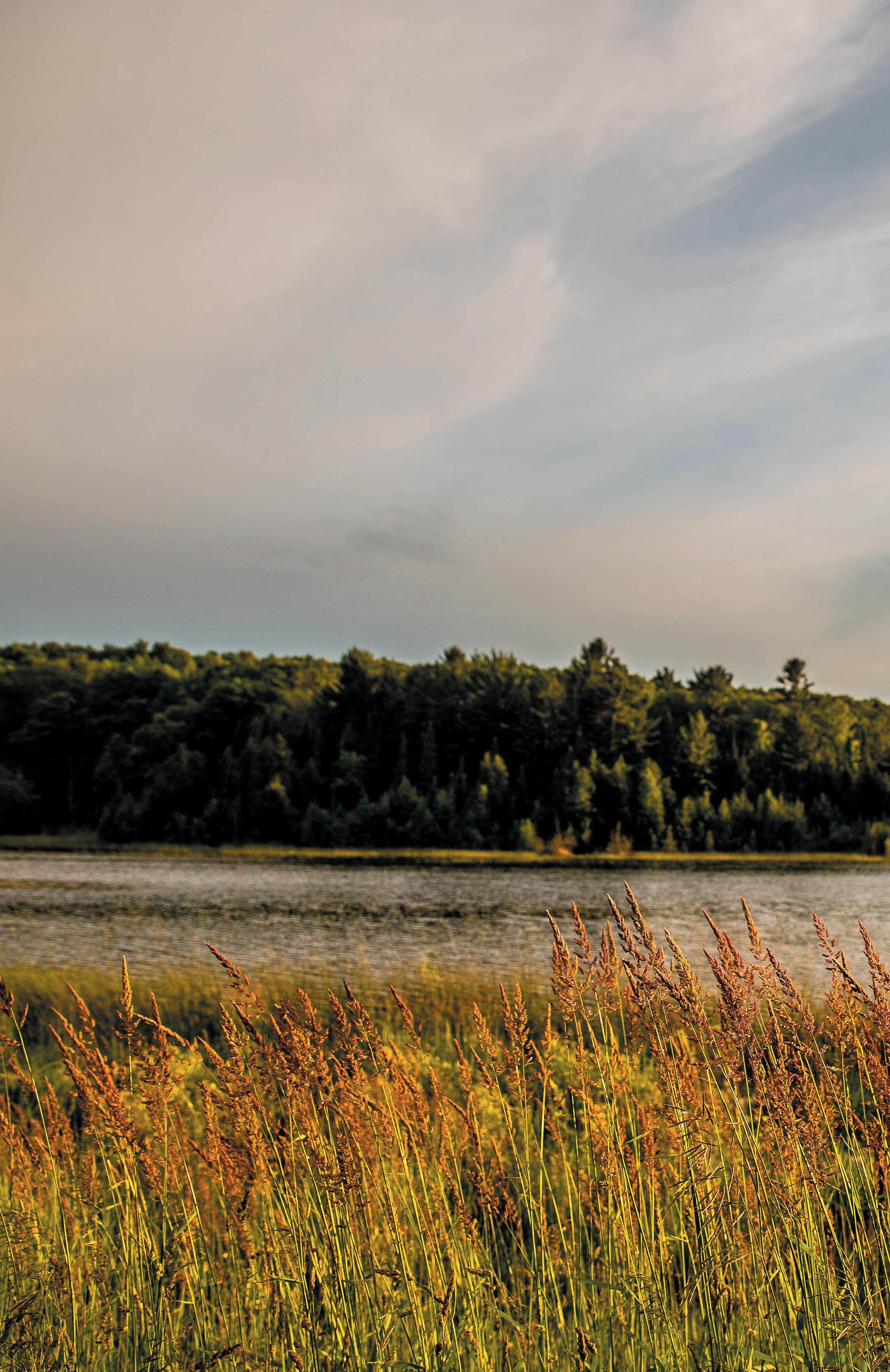
To learn how you can join the Friends of CMUBS, please contact:
Rebecca Walker
Constituent Engagement Officer
Phone: 989-774-2923
Email: becky.walker@cmich.edu
Dr. Donald G. Uzarski
Director, CMU Biological Station
Phone: 231-448-2122
Email: uzars1dg@cmich.edu

Kim Schraitle
Interim Manager, CMU Biological Station

Phone: 231-448-2120
Email: schra2kj@cmich.edu
CMU Biological Station
Phone: 231-448-2325
Email: cmubs@cmich.edu
Website: se.cmich.edu/CMUBS





































